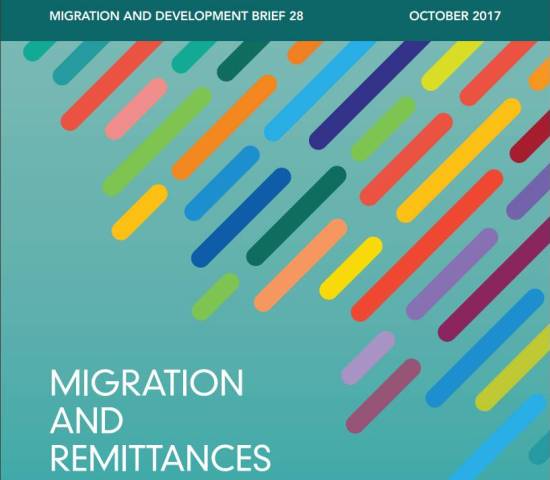According to the World Bank, remittances are bouncing back following a two-year decline.
Caribbean Intelligence© has pulled together the regional and Diaspora highlights from the latest report Migration And Remittances – Recent Developments and Outlook, issued in October 2017 by the World Bank and the Global Knowledge Partnership on Migration and Development (KNOMAD).
We also took a look at what it all means for people in the Diaspora sending money home:
- The report projects worldwide remittance flows to reach US$596bn. The rebound is linked to stronger economic growth in countries including European Union nations and the United States.
- This development is, however, hindered by what the report called “structural constraints”. These include de-risking behaviour by international correspondent banks and increased regulatory burdens on money transfer operators (MTOs) which the report said “continue to hinder the growth of remittances, especially through formal channels”.
- So what is de-risking and why does it matter to the average Diaspora worker looking to send money home? A forum held in Trinidad’s capital, Port of Spain, in November 2016, explored the problems of global banks not allowing smaller Caribbean banks access to international payment systems. The idea is to avoid risks of money laundering and financial crime. IMF Deputy Managing Director Tao Zhang told the forum that “the withdrawal of correspondent banking relationships presents a clear and present danger to the Caribbean”. The IMF said that if global banks do not facilitate money transfers, the breakdown of this relationship cuts the smaller banks off from international trade. It means that families are unable to collect remittances from relatives working abroad and foreign investors might be unwilling to invest if there’s a risk of repatriating profits.
- Why is de-risking taking place? The IMF said that a survey conducted by the Caribbean Association of Banks had shown that banks in 12 countries in the Caribbean had experienced loss of so-called correspondent banking, including the Bahamas, Belize, Guyana, Jamaica, Suriname, Trinidad and Tobago and countries in the Eastern Caribbean Currency Union. The IMF said: “Increased regulation of banking systems globally - to address concerns about tax evasion and combat money laundering and the financing of terrorism - has had the unintended consequence of making correspondent banking relationships costlier and less attractive to global banks.”
- The World Bank in 2017 on de-risking: "De-risking—when international correspondent banks close the bank accounts of money transfer operators (MTOs), to avoid risks of money laundering and financial crime - continues to place regulatory burdens on MTOs, especially smaller and newer players. This is preventing the diffusion of newer technologies and innovative remittance platforms. Furthermore, the persistence of exclusive arrangements between state-run agencies, such as post offices, and large remittance companies creates non-competitive market structures. This raises remittance costs and diverts remittances to informal channels, thereby retarding their macroeconomic benefits.”
- Remittances to Latin American and the Caribbean stood at US$73.6bn in 2016. That figure is projected to increase to $78.66bn this year and forecast to reach $84.5bn in 2019. (This figure includes Mexico, which is one of the top five remittance recipient countries in the world and the largest in this region, accounting for $30.5bn of this year’s regional figure).
- Haiti is within the top five smaller country recipients, when broken down as a share of gross domestic product (GDP). Remittances to Haiti are expected to form 31.2% of the nation’s GDP this year.
- Remittance inflows to Jamaica are expected to make up 17.4% of GDP this year and Guyana’s remittances 8.4% of GDP in 2017.
- Remittance inflows for the Dominican Republic grew by more than 10% in the first seven months of 2017 – projected for 7.2% of the country’s GDP.
- Remittances to Belize are expected to make up 5.3% of GDP and Dominica’s remittances have been projected as 4.4% of GDP for 2017.
The World Bank report said that “given the available technologies, remittance costs have not declined as fast as in other regions. Remittance costs are higher still for the Caribbean countries.”
